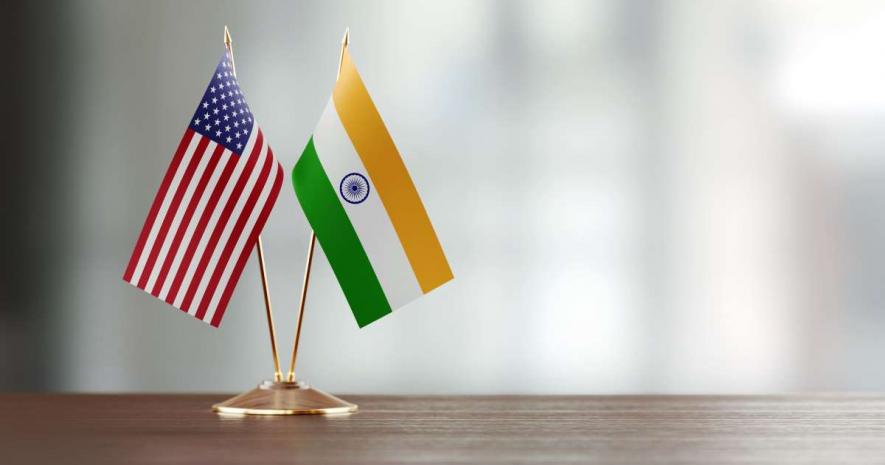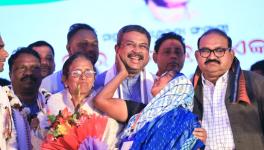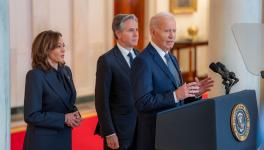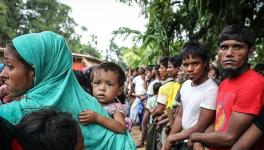Polarised Indian Politics Reflects in United States Diaspora

A consistent aspect of India’s ties with the United States has been the Indian thrust on its diaspora and using them to influence the American administration. Many attribute the 2005 India-United States nuclear agreement to the diaspora strongly lobbying in its favour in policy circles within the United States executive and Congress.
Diaspora refers to any group of people who have spread from the original country to other countries. It can include people who have given up their citizenship and those who retain citizenship of their original homeland. In the United States context, which is unique because of its immigrants from across the world, any diaspora’s engagement with the politics of origin is nothing new. Early migration to the United States was more or less limited to Europe. Interestingly, more people of Irish stock live outside of present-day Ireland. Former United States president Bill Clinton proudly invoked his Irish roots, and the incumbent Joe Biden doesn’t let go of any opportunity to invoke his Irish Catholic roots and quote the Irish poets William Butler Yeats and Seamus Heaney.
In the 1960s and 1970s, New York City and Boston bars, where Irish Americans live in large numbers, were infamous for fundraising activities of the violent secessionist movement in Northern Ireland. Outside people of European extract, people of Lebanese extract live in the Midwest, particularly in Michigan state, in large numbers. A sizeable Cuban diaspora, mostly of European heritage, lives in Florida, and it influences the mercurial United States policy towards Cuba.
Coming back to the Indian diaspora, it has some specific characteristics. At least four million Indian immigrants were said to live in the United States in the 2021 Census, which is barely 2% of the population. Indians are among the largest number of international students enrolled in higher education, and receive two-thirds of employer-sponsored H-1B temporary visas for highly-skilled workers. In a December 2022 paper published by Migration Policy Institute, “Indian Immigrants in the United States”, the authors, Ari Hoffman and Jeanne Batalova inform that only 48% of Indian immigrants were citizens, as compared to 53% of all immigrants in the United States as per the 2021 Census. Therefore, a majority of the Indian diaspora living in the United States are not its citizens. In fact, approximately 44% arrived in 2010 or later.
The kernel of the Indian diaspora’s support for Prime Minister Narendra Modi comes from the large Gujarati-origin population who live in more significant numbers in New Jersey state of the East Coast, and this migration is primarily based on family ties. The migration of ethnic Gujaratis continues even today across all age spans. A Gujarati man as old as eighty told me on a flight to the East Coast that he had recently migrated and got his new citizenship through family ties! While the fact is often highlighted that Modi, as Gujarat chief minister, was denied a diplomatic visa by the United States in 2005, it is forgotten that in 1994 he toured the United States on a month-long State Department fellowship. Several photos of Modi from 1994 with ethnic Gujaratis have circulated in the public domain.
The fact that a vast array of the Indian diaspora is politically and socially tightly connected to India has implications. First, as immigration controls for Indians lower and young Indian engineers, primarily men, garner H1-B visas, more and more Indians will settle in the United States. The hurly-burly of Indian politics, which can sometimes be deeply polarising, as is the trend nowadays, can be replicated within the diaspora. The importance of South Asian identity cannot be underestimated in the United States context. In fact, any larger identity provides a potent social capital to a family or individual who find themselves in an altogether different societal and professional landscape.
The practical realities of the United States are no different from anywhere in the world, for examples, references with the appropriate prerequisites are at the heart of getting a foot in the door, whether in lateral entry or big tech. For instance, many H1-B visas result from references from fellow Indians already in middle or higher positions in the Bay Area’s tech landscape. In fact, the factor of chance and smart networking is higher in the United States. In the United States, culturally, there is little to differentiate Bangladeshi, Indian, Sri Lankan or even Pakistani and all are construed to be a part of South Asian ethnic grouping.
Second, the expectation that the Indian diaspora in the United States, citizens of the country or not, would influence its policies and administrations should be tailored to the institutional realities of the United States. Unlike India, where a Prime Minister with a large majority, such as Modi, faces no de-facto institutional or political impediment, foreign policy decisions of the United States president have to be ratified by the Congress. Executive power in the United States is severely constrained by institutional checks and balances. This fact may not be important in the short run as most recent agreements between India and the United States are expected to be passed due to the bipartisan consensus for the relationship with India. However, as the diaspora becomes even bigger, more diverse and assimilated into the United States, trying to identify the positive trajectory of the ties between the two countries with a particular party or individual has consequences.
While there seems to be visible support in favour of India’s current political establishment among parts of the diaspora, there is also a section concerned about the issue of civil liberties in India. This is coupled with second-generation Indian Americans, minorities in the United States, who are generally quite sensitive to respect for human rights, particularly minority rights. One cannot forget that more than seventy United States Senators and the House of Representatives wrote to Biden, asking him to raise concerns about democracy and human rights in India.
The relations between the United States and India should be divorced from personality cults. From the mid-1990s to the present, the upswing in ties is primarily facilitated by the convergence of geo-political interests and broadly bipartisan support in both countries. Facilitating the ease of personal or professional mobility and entrepreneurial investments by the diaspora in India is a potential win. However, the relationship should continue to be based on the substantive merit of policies rather than over-reliance on the Indian diaspora in the United States.
The writer is the author of two books on Jammu and Kashmir, including Across the LoC, Columbia University Press. The views are personal.
Get the latest reports & analysis with people's perspective on Protests, movements & deep analytical videos, discussions of the current affairs in your Telegram app. Subscribe to NewsClick's Telegram channel & get Real-Time updates on stories, as they get published on our website.
























